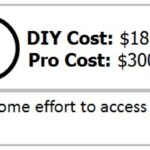Canadians seeking a new or used vehicle often utilize a car loan program. Understanding the various financing options available is crucial to making an informed decision. This guide explores different Canada Car Loan Programs, including dealership financing, loans from financial institutions, and alternative options like leasing and rent-to-own plans.
Understanding Canada Car Loan Programs
Car loans in Canada are personal loans specifically designed for vehicle purchases. Two primary avenues exist for securing a car loan: through a dealership or directly from a financial institution.
Dealership Financing in Canada
Most car dealerships in Canada offer financing options, streamlining the process for buyers. Dealers typically partner with:
- Manufacturer Financing Divisions: Many car manufacturers have their own financing arms, offering loans directly through dealerships.
- Financial Institutions: Banks and credit unions often collaborate with dealerships to provide car loans.
- Independent Finance Companies: Specialized companies focusing on car financing also work with dealerships.
Applying for a loan at the dealership offers convenience, allowing you to handle financing and purchasing in one location. However, it’s advisable to compare rates and terms with other lenders before committing.
Securing a Car Loan from a Financial Institution
Obtaining a car loan or line of credit directly from your bank or credit union can be advantageous. Existing relationships with your financial institution, especially if you have a good standing, might lead to better interest rates and terms.
Negotiating directly with your financial institution allows you to leverage your financial history and potentially secure a more favorable deal. Pre-approval from your institution can also strengthen your bargaining position at the dealership.
Exploring Alternatives to Traditional Car Loans in Canada
Beyond traditional car loans, Canadians can explore alternative financing methods like leasing and rent-to-own plans.
Car Leasing in Canada
Leasing involves making regular payments for the use of a vehicle over a predetermined period, typically three to five years. At the lease’s end, you can return the car, purchase it, or opt for a new lease.
Pros of Leasing:
- Lower monthly payments compared to loans.
- Access to newer vehicles more frequently.
- Potential inclusion of warranties and maintenance coverage.
Cons of Leasing:
- Higher overall cost compared to buying.
- No ownership at the end of the lease term.
- Potential penalties for early termination.
- Mileage restrictions and wear-and-tear charges.
Rent-to-Own Car Programs in Canada
Rent-to-own programs allow you to make regular payments towards eventual ownership of a vehicle. These programs often target individuals with poor credit history but come with higher costs and interest rates.
Careful consideration of your financial situation and long-term goals is essential before choosing a rent-to-own program.
Choosing the Right Canada Car Loan Program
The best Canada car loan program depends on individual needs and circumstances. Factors to consider include:
- Budget: Evaluate monthly payment affordability.
- Credit Score: A good credit score unlocks better rates and terms.
- Ownership Goals: Determine whether ownership is a priority.
- Vehicle Usage: Consider mileage and usage patterns.
Comparing offers from multiple lenders, including dealerships and financial institutions, is vital to securing the most favorable terms for your Canada car loan. Researching and understanding the different Canada car loan programs available empowers you to make an informed decision that aligns with your financial goals.

